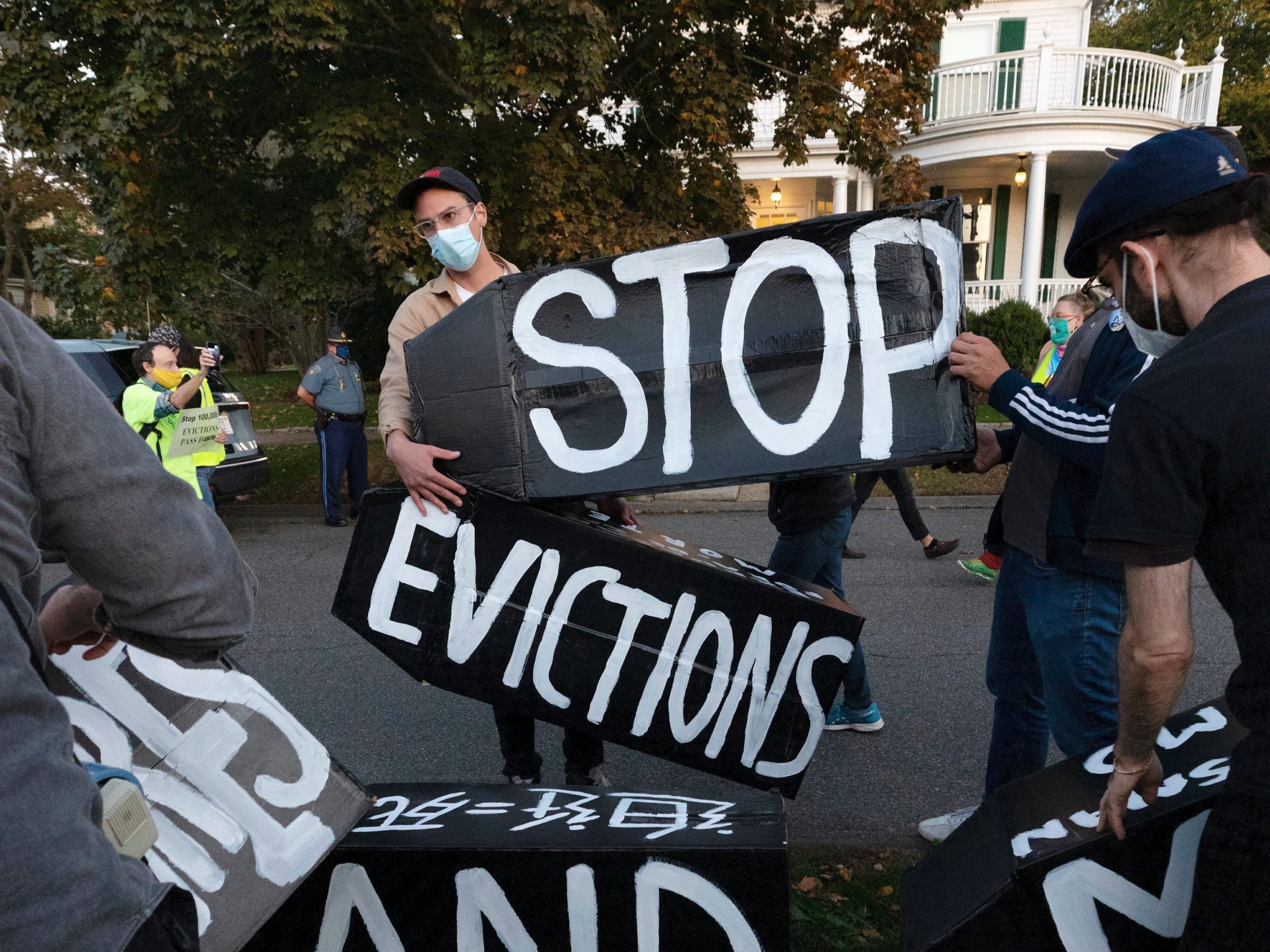
Michael Dwyer/AP Photo
- The CDC extended the ban on evictions through June 30 on Monday.
- This extension comes two days before the current eviction ban was set to expire.
- Lawmakers and experts said that while an extension was needed, Biden needs to enforce the ban better.
- See more stories on Insider's business page.
Two days before it was set to expire, on Monday the Centers for Disease Control and Prevention extended the ban on evictions through June 30 to help struggling renters.
On his first day in office, President Joe Biden extended the eviction moratorium through the end of March as part of his pandemic relief measures. Given that the CDC oversaw the extension, administration officials said any further extensions would be weighed along with public health concerns, and since the pandemic is still ongoing, and to provide relief to those who cannot afford to pay rent, CDC Director Dr. Rochelle Walensky signed an extension on the ban for three more months.
"The COVID-19 pandemic has presented a historic threat to the nation's public health. Keeping people in their homes and out of crowded or congregate settings – like homeless shelters – by preventing evictions is a key step in helping to stop the spread of COVID-19," a CDC statement said.
Individuals who earn under $99,000 a year and couples who make under $198,000 a year and are unable to pay full rent due to substantial losses of income are eligible for the moratorium.
According to a White House fact sheet, here is how agencies will work to implement the extension:
- The Treasury Department will continue to administer emergency rental assistance and $1,400 stimulus checks;
- The Dept. of Housing and Urban Development will perform outreach on the extension and offer guidance to grantees;
- The Dept. of Agriculture will notify 7,000 property owners in its multifamily portfolio to inform them of their obligations under the CDC extension;
- And the Consumer Financial Protection Bureau and Federal Trade Commission will monitor eviction practices to make sure companies are complying with the law.
Evictions during the pandemic have increased the transmission of the virus, according to the CDC, and the Center on Budget and Policy Priorities reported that one in five renters is behind on rent, and 30 million to 40 million Americans are at risk of eviction.
To aid struggling renters and homeowners, Biden included more than $40 billion in emergency housing aid in the most recent stimulus package, which is on top of the $25 billion in rental assistance that was included in December's stimulus package.
However, a White House fact sheet said that Americans still owed $25 billion in back rent and require more aid. The Washington Post first reported last week that Biden was considering extending the eviction ban to account for delays in distributing stimulus aid, which have made it difficult for Americans to keep up with their rent payments.
For example, stimulus changes from both December and March caused the Internal Revenue Service to face delays in processing nearly 7 million tax returns, and customers of major online tax preparers, like TurboTax and H&R Block, were told to wait to file an amended return while the companies updated their software.
Along with delays in receiving aid, lawmakers expressed concern with the flexibility that states have under the current eviction ban. Earlier in March, a federal Ohio judge was challenged in court after ruling the eviction ban unconstitutional, and in February, a Texas judge succeeded in ruling against the ban.
Rep. Maxine Waters of California told Treasury Secretary Janet Yellen during a hearing last week that she is "very concerned" about the flexibility states have under the current rule.
"I'd like to know if you can think about any role we can play to straighten out this confusion and to help stabilize this rental assistance," Waters said.
And on March 15, over 2,300 organizations joined the National Low Income Housing Coalition on March 15 in calling for Biden to issue an executive order that strengthens and enforces protections for renters.
"It is critical that we take all necessary action to protect individuals from evictions and, in worst cases, homelessness during the COVID-19 pandemic," the organizations said in a letter. "The CDC moratorium is a public health necessity, and we urge you to take immediate action to issue an Executive Order that extends, improves, and enforces these protections through the end of the pandemic."